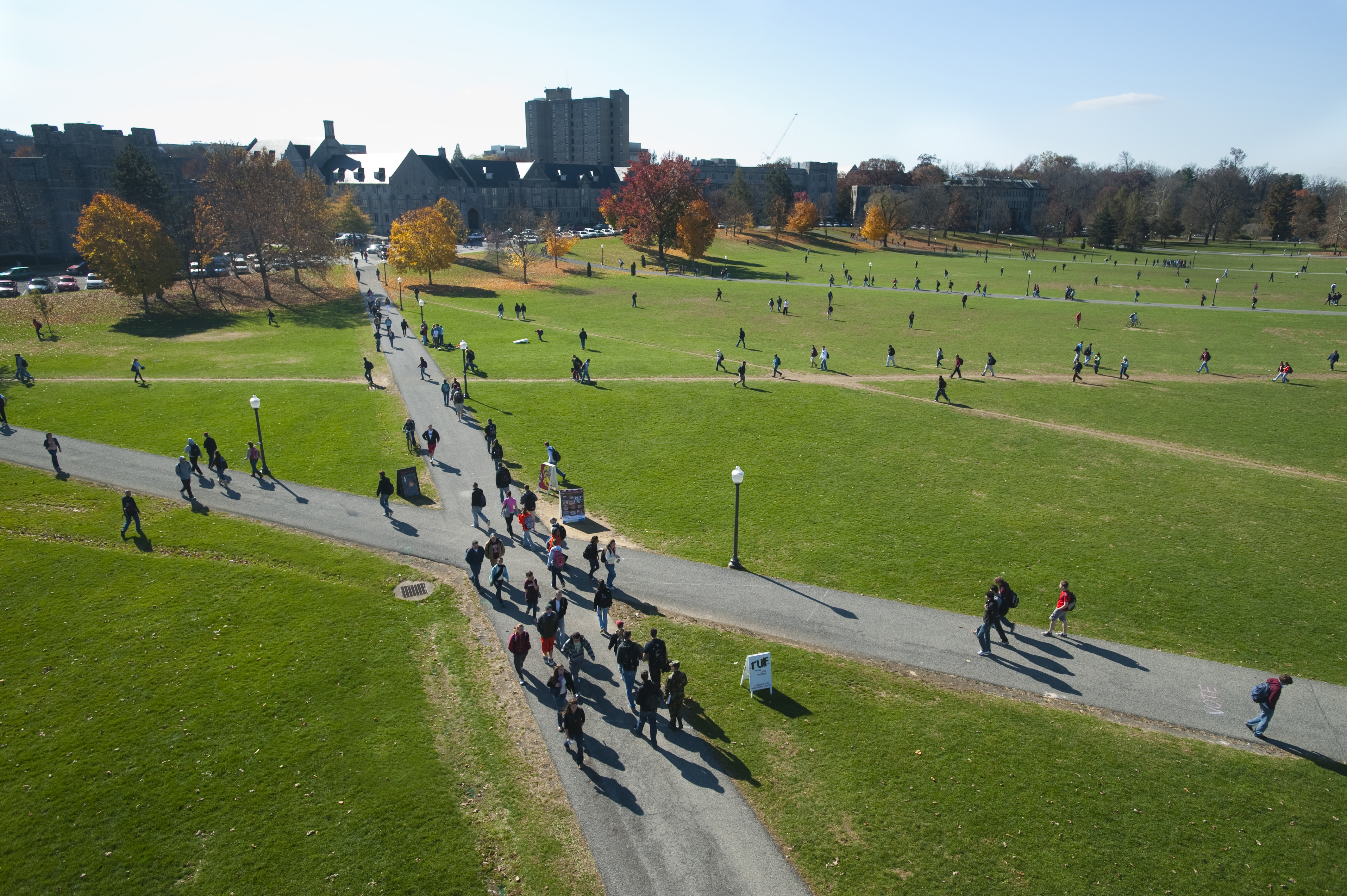First Year Experiences: Specialized courses help students start on the right path

Thousands of new students are on their way to their first class at Virginia Tech today. Excitement and anxiety – intermixed – reign among the newest members of the Hokie Nation.
About half of those students – which includes traditional first-year students as well as transfer students – will take part in a Pathways to Success course funded by the Office of First Year Experiences. The classes are designed to help students transition to college while developing lifelong learning skills.
Pathways to Success courses are offered in all seven of the undergraduate colleges at Virginia Tech, including 36 academic departments, two schools, one advising unit for students not yet in a major, and two living-learning communities. Virginia Tech News will give a snapshot of the variety of courses offered across the university over the next two weeks in a special story series.
While each course has a different focus to meet the needs of its unique students, all center around the same three key learning objectives: problem solving, inquiry, and integration of learning.
“The first year for many students is critical and the behaviors and attitudes they develop often persist beyond that initial year,” Jill Sible, assistant provost for undergraduate education, said. “Our goal with the First Year Experiences program and its courses is to make sure students set off in the right direction.”
In 2009, the university offered its first Pathways to Success courses – just five projects touching 800 students. Since then, it has grown to 14 projects touching more than 3,000 students. Next year, the office hopes 5,000 students will take a First Year Experiences course.
The key to the program’s rapid expansion is partnerships. “We rely on faculty members, departments, and colleges to apply for new projects and expand their current offerings,” Mary Ann Lewis, director of the Office of First Year Experiences, said. “Beyond that, other partnerships with groups such as University Libraries, the Division of Student Affairs, distance learning, and many others, makes our projects and goals for the program’s future possible.”
The Office of First Year Experiences provides funding to selected projects that can be used to cover course expenses such as graduate or undergraduate teaching assistance and technology support. All courses must support the three First Year Experiences learning outcomes (problem solving, inquiry, and integration of learning). Other course requirements include collaboration with University Libraries and the Division of Student Affairs and integration of the university’s Common Book and electronic Pathways Planner.
The Office of First Year Experiences and the Pathways to Success plan were born as part of the university’s Quality Enhancement Plan in a reaffirmation of accreditation process through the Southern Association of Colleges and Schools – Commission on Colleges.
Throughout the next two weeks, Virginia Tech News will highlight some of the Pathways to Success projects from across the university.
Dedicated to its motto, Ut Prosim (That I May Serve), Virginia Tech takes a hands-on, engaging approach to education, preparing scholars to be leaders in their fields and communities. As the commonwealth’s most comprehensive university and its leading research institution, Virginia Tech offers 240 undergraduate and graduate degree programs to more than 31,000 students and manages a research portfolio of $513 million. The university fulfills its land-grant mission of transforming knowledge to practice through technological leadership and by fueling economic growth and job creation locally, regionally, and across Virginia.




